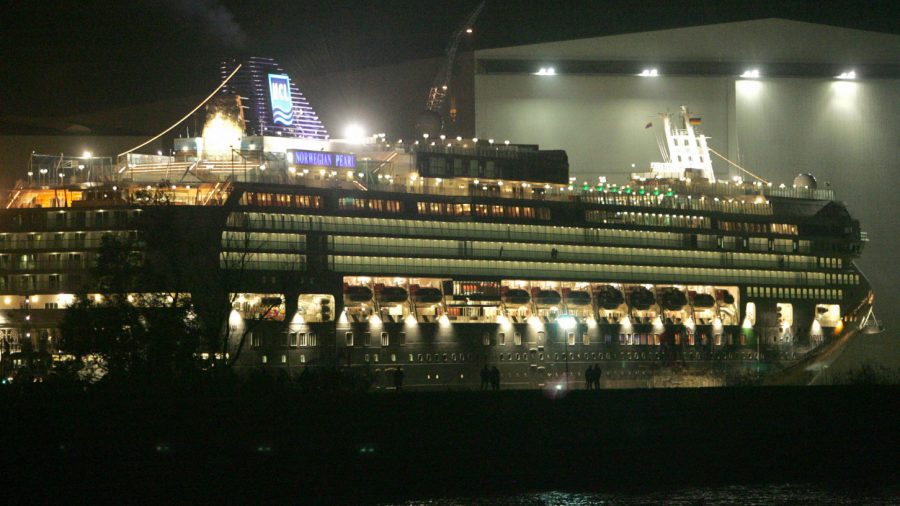A Miami-based federal jury has directed Norwegian Cruise Line (NCL) to pay a passenger $2.08 million for negligence aboard their ship.
The ruling stemmed from a negligence lawsuit over a heart attack the passenger suffered on board the NCL’s Norwegian Pearl vessel in 2016.
Andrew Ow Buland, a Trinidad and Tobago resident, survived the heart attack, but his lawyers said that he suffered unnecessary additional damage because he was kept on the ship for two days afterward until the ship docked in Miami, Florida.
Ow Buland “was assured by [the] ship’s medical personnel that the heart attack was very minor and that Mr. Ow Buland would be okay to remain on the vessel until it docked in Miami,” the lawyers stated in a court document. The ship also didn’t speed up to get Ow Buland there faster.
When the ship finally docked on Nov. 17 that year, Ow Buland was rushed to Mount Sinai Hospital. He was in cardiogenic shock when he got there and needed to get four stents implanted. He was on life support for five days.

A jury found the cruise line negligent on March 1 and awarded Ow Buland $1.2 million for pain and suffering and loss of capacity for enjoyment of life in addition to $800,00 for future hospitalization and other medical expenses, and $84,000 for loss of past and future services.
One of Ow Buland’s attorneys, Coral Gables litigator Gary Friedman, said that the two days spent on board when his client could have been receiving care at a hospital were crucial.
“Time is tissue when it comes to heart attacks,” Friedman told the Daily Business Review. “When heart muscle dies it does not regenerate. The goal is always to reperfuse as soon as possible.”
Friedman said that cruise ships have upgraded a lot over the years, but medical care has lagged behind.
“The medical care on these ships very often has not kept up with the shipbuilding capacities of these cruise lines,” Friedman said. “As they advertise these floating ships and they’ve got all these advances and technology … very often if you have a critical health issue you end up being trained [sic] by a foreign-trained physician with limited experience.”
He said Ow Buland was “extremely happy” with the ruling.
“What patient would want to be treated like that?” he asked. “Apparently the jury agreed.”
$3 Million Awarded in Another Case
In a similar case decided on recently, a federal jury found Royal Caribbean International responsible for a passenger who suffered a heart attack aboard an Alaskan cruise in 2016 and died.
Richard Puchalski was on the cruise with his family to celebrate his 70th birthday.
His lawyers argued that the death stemmed from several errors made by the ship’s doctor, Dr. Amanda Saunders, turning a serious cardiac incident into a fatal heart attack.
When Puchalski went to the infirmary on the Explorer of the Seas on July 31, 2016, Saunders gave Puchalski medication which “contradicted the condition she properly diagnosed,” and sent him back to his room, his counsel Haggard Law Firm said.
About 30 minutes later, he collapsed. He wasn’t transferred to a hospital on land until late afternoon. He died four days later.

A jury ruled in favor of the plaintiff, awarded his family $4.8 million in loss of companionship and pain and suffering, reported the Herald, in addition to $34,390 in medical expenses.
“Until the cruise line industry makes the long-overdue, necessary changes to the standard of care, more families will suffer these life-changing tragedies, and we will continue to file these lawsuits and present to juries these obvious cases of negligence,“ said Michael Haggard, a lawyer for Puchalski’s family, in a statement after the decision, according to the Herald.
Royal Caribbean said it planned to appeal.
“We respectfully disagree with the outcome of this case. We are considering our legal options, and we intend to appeal the decision,” said Owen Torres, manager of corporate communications for the company, wrote the Herald.

